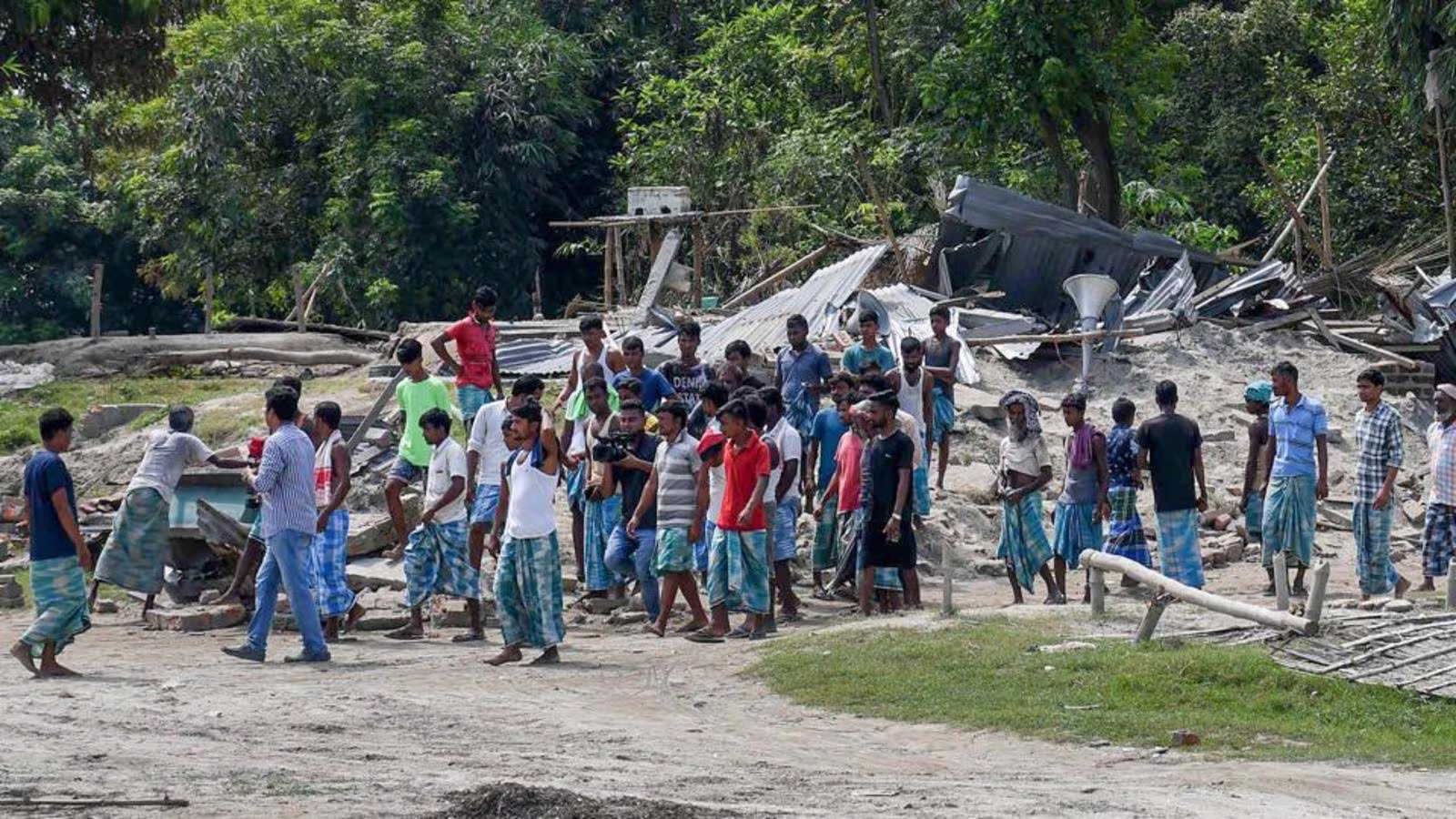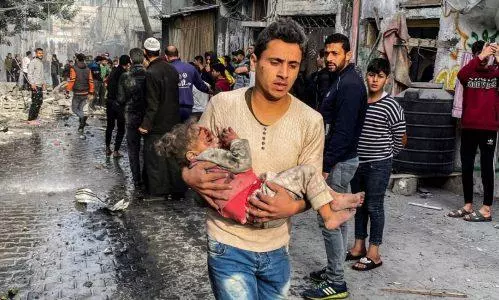
Hell on Earth has returned to Gaza: Israeli bombs kill 180 more people
text_fieldsThe Gaza Strip has once again become a battleground as Israeli forces resumed their bombardment after a week-long truce expired, leaving more than 180 people dead, with hundreds wounded, as both sides blame each other for the collapse of the ceasefire.
The Eastern areas of Khan Younis in southern Gaza bore the brunt of the renewed airstrikes, prompting residents to flee with their belongings in search of safer locations. Simultaneously, sirens blared across southern Israel as militants fired rockets into towns, with Hamas claiming to target Tel Aviv, though no casualties or damage were reported.
Gaza health officials reported 184 people killed, over 589 wounded, and more than 20 houses hit in Israeli airstrikes. The situation has prompted the Israeli military to drop leaflets urging civilians to flee, although human rights groups, including Doctors Without Borders, have warned that there are no safe places in Gaza.
The United Nations expressed deep concern over the worsening humanitarian emergency, with a spokesperson stating, "Hell on Earth has returned to Gaza." The Palestinian Red Crescent reported that Israeli forces prohibited the entry of trucks at the crossing, exacerbating the challenges faced by humanitarian organizations in providing relief to citizens and displaced persons.
Amid the escalating crisis, Gaza's government media office called on Arab and Muslim states to establish field hospitals urgently and send aid trucks, including at least one million litres of fuel per day. The spokesperson emphasized the need for an "urgent rescue plan" to address the fate of over 250,000 families who have lost their homes.
Both sides blamed each other for the collapse of the truce, citing disagreements over the terms for the daily release of hostages held by armed groups in exchange for Palestinian detainees. Mediation efforts involving Qatar, the United States, and Egypt faced complications due to Israel's renewed bombardment.
Qatar's Prime Minister, Sheikh Mohammed bin Abdulrahman bin Jassim Al Thani, expressed commitment to de-escalation efforts during a meeting with the UK's Foreign Secretary, David Cameron. The White House also announced its push to restore the truce, calling for more captives to be released and increased humanitarian aid to enter Gaza.
However, despite these efforts, the situation remains dire. Egypt stated its ongoing work to reinstate the truce as soon as possible. The conflict, ongoing since November 24, has resulted in over 15,000 Palestinian deaths in Gaza, including more than 6,000 children, while Israel's official death toll stands at approximately 1,200.

















